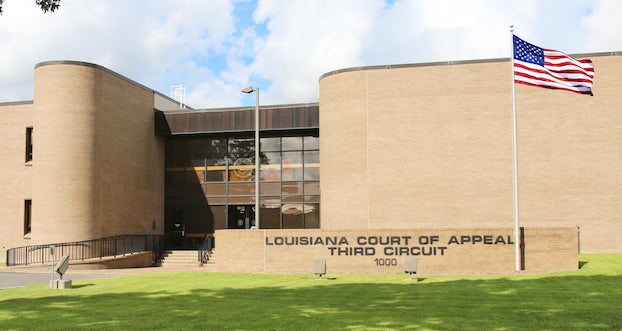Judge denies appeal for women convicted in 2009 LC slaying
Published 6:00 pm Saturday, May 18, 2019
Judge David Ritchie on Friday denied a defense motion after earlier hearings were held for two women who are serving life sentences after being convicted of second-degree murder in 2012.
Robyn Little Davis, 57, and Carol Noland “Sissy” Saltzman, 55, were found guilty at trial of the murder of Brian Davis, whose body was found in June, 2009 at the end of Wagon Wheel Road in south Lake Charles, after he had been missing for four days.
Davis was shot four times and prosecutors said the scene was staged to look like the victim was robbed while changing a tire.
Former career prosecutor Rick Bryant prosecuted the case for the Calcasieu Parish District Attorney’s Office and said at the time that the two women, working together, lured the victim to the scene to kill him for reasons including money, anger, and opportunity.
“He had an affair, she (Robyn Davis) caught him in the affair, and confronted him about it,” Bryant said. “She had no money at all and yet she was out gambling and playing poker. Also, the insurance proceeds. He had over $700,000 in insurance. Saltzman was her friend. She and Robyn Davis were joined at the hip.”
The women were seeking a new trial based on the fact that they say their defense attorneys were not given all evidence by the state as required by law. Davis and Saltzman were brought to court for previous hearings from the Louisiana Correctional Institute for Women but were not in court on Friday.
Glen Vamvoras and Shane Hinch were the defense attorneys during the trial but both women are now being represented by Paul Barker, an attorney from Baton Rouge.
Ritchie, who was also the judge at trial and has overseen a couple of recent hearings for the women who are in the post-conviction relief stage, said Friday he had a “front-row seat” to the case because he had been involved with it from the pre-trial phase to the trial, sentencing, and through the appeals process. “I’m very, very familiar with this case,” he said.
Barker said at the most recent hearing in April that there were 23 items of newly-discovered evidence which is what most of that hearing centered around.
“But all of the evidence was previously known to the defense,” Ritchie said. “Mr. Barker seemed to feel that the evidence had to be provided and not just mentioned but the law doesn’t say that. If the state knows something and doesn’t mention that, it’s a Brady violation but that didn’t happen here. All of the evidence had been mentioned by the state.”
Ritchie said he had reviewed all materials, memos from the state and defense, and listened to testimony from recent hearings.
He said in order for the defense to be able to move forward with its assertion that it had not been given all evidence, there would have to be something new or that wasn’t known by the defense and he said that wasn’t the case.
“I’m denying the defense’s motion because I don’t find that any of this meets the standards required for what the defense was asking for,” he said.
In 2014, the U.S. Supreme Court declined to hear appeals of the defendants.
The high-profile case, referred to by prosecutors at trial as the “Thelma and Louise” case in reference to the movie by the same name, has been the subject of several television programs, including “48 Hours,” “20/20,” and “Deadly Sins.”





